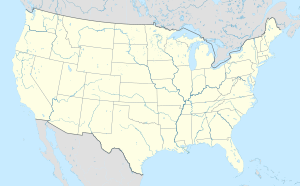Meredosia National Wildlife Refuge facts for kids
Quick facts for kids Meredosia National Wildlife Refuge |
|
|---|---|
|
IUCN Category IV (Habitat/Species Management Area)
|
|
| Location | Cass County, Morgan County, Illinois, United States |
| Nearest city | Meredosia, Illinois |
| Area | 5,255 acres (21.27 km2) |
| Established | 1973 |
| Governing body | U.S. Fish and Wildlife Service |
| Website | Meredosia National Wildlife Refuge |
The Meredosia National Wildlife Refuge is a special place in Illinois. It covers about 5,255 acres (21.27 km2) of land. This refuge is found along the Illinois River in Cass County and Morgan County. It's close to the town of Meredosia, Illinois. The U.S. Fish and Wildlife Service takes care of it. They manage the refuge from their main office in Havana, Illinois.
Exploring the Refuge's Nature and Past
The Meredosia National Wildlife Refuge is located in a river area. This area was once a large wetland. It borders the Illinois River, which is a major path for waterfowl (like ducks and geese) to fly during their migrations.
Much of the refuge is on a wet piece of land. People still call it Meredosia Island. Even though it's called an island, it's now connected to the main land. This happened because some old river areas were drained. To the east of the refuge, there is a big, shallow body of water called Meredosia Lake.
How the Refuge Was Formed
In the early 1900s, people tried to drain parts of the Illinois Riverbed. They wanted to turn these wet areas into farmland. However, Meredosia Island was too wet and hard to drain.
Because the land was so wet, it was bought in the early 1920s. A group called the Chicago Meredosia Gun Club bought it. These men liked to hunt ducks and geese there.
The gun club's workers started to manage the ponds on Meredosia Island. They did this to help the waterfowl. In 1973, the federal Fish and Wildlife Service took over much of the island. This is when the current refuge was created. The efforts to help waterfowl continued.
Protecting More Land for Wildlife
The Fish and Wildlife Service is still working to buy more land for the refuge. As of 2009, they had bought about 3,582 acres (14.50 km2). This is almost 70 percent of the total area they plan for the refuge.
The land that the federal government now owns or manages is important. It helps not only waterfowl but also other birds. These include shorebirds and wading birds. Many other types of wildlife that live in the Illinois River valley are also protected here.
The Fish and Wildlife Service has big plans for the refuge's future. They want it to have many different types of habitats. These include backwater lakes, forests along the river, upland forests, and prairies. They also plan for seasonal wetlands and permanent marsh areas. All these different habitats will help many kinds of animals and plants thrive.


